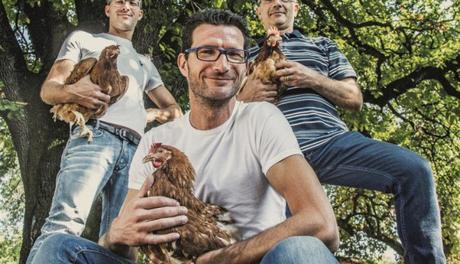
organic, Organic, ORGANIC!!!
I feel like this word is shout it out at every corner, on every websites. Organic vegetables, organic pastas, organic fruit. But what does it mean to be organic? Who can we trust and who can we not?

- Coming from Italy I know Alce Nero very well, but could you introduce it to our readers, as for most people here in China, this name might be new?
Founded in 1978, Alce Nero™ is one of the pioneers of organic farming in Italy. It was developed through the efforts of young farmers who, aware of the negative externalities of intensive farming, decided to join forces and create a cooperative to sell their products. Today, it is one of the most successful organic food brands in Italy, with a growing presence in international markets.
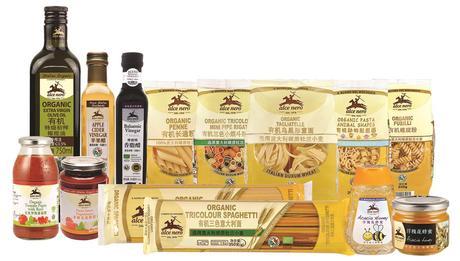
In Italian, "alce" means "elk", the animal from the deer family, and "nero" means "black". The brand Alce Nero™ is named after Black Elk (1863-1950), a Native American Chef. He was a 'medicine man', that is a traditional healer and spiritual leader, from the Lakota (Sioux) tribe. He became famous for his visions which came to him during a time of decimation and loss, when outsiders were stealing the Lakota's land, slaughtering buffaloes, and threatening their age-old way of life. Led by their Chefs, the Lakota tribe fought unceasingly for their freedom, leading the fight of the Native nation to resist the reservation and the loss of their habitats.
Black Elk's spirituality was based on the love of the Earth, the harmony with nature and all its creatures, and the respect for tradition, thus becoming an inspiration for the founders of Alce Nero™, who decided to name their brand after him and choose the Native American Chef riding a horse as its logo.
- What is the vision behind Alce Nero products?
Alce Nero's vision can be summarized in its motto: 'From the fields to your plate'. It is a simple, yet very meaningful statement: consumers are growingly disconnected from the food they eat due to the pace of modern life. Foodstuffs are sourced and mass-produced globally at any season to feed a booming urbanized population, yet with a heavy toll on the environment and our health. With the development of modern distribution, we lost the link to the farmers in a couple of generations only.
At Alce Nero™, we believe that we need to break this cycle by offering consumers an alternative that put the focus back on the people who grow our food, the farmers, in respect of nature, seasonality and biodiversity. As a matter of fact, faced with recurring food scandals, more and more consumers want to know where their food come from, by who and when it was harvested.
This is why traceability is at the basis of our vision. Alce Nero™ is unique because our farmers are both producers and shareholders, and we are able to put a name behind each product. By choosing our products, you always know what you're eating because each label shows where it was produced: rice grown between Vercelli and Novara, spelt from Tuscany, the Marche, Piedmont and Lombardy, tomatoes from Emilia Romagna, etc. All products are directly from our fields, grown without pesticides and chemicals, and produced by our member companies, so that we can guarantee consumers total traceability.
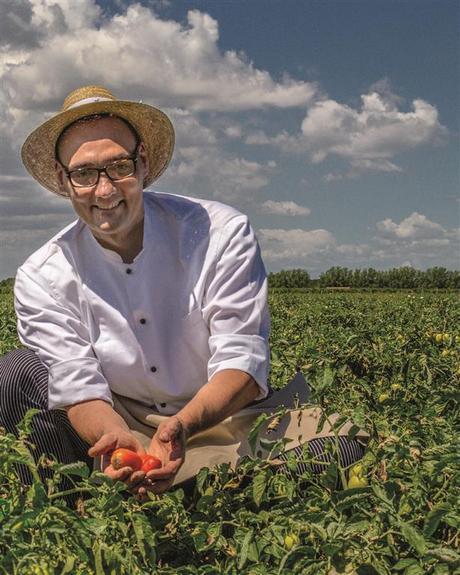
- When did Alce Nero arrive in China? What is your strategy for the (tough) Chinese market?
Alce Nero™ arrived in China in 2008, after obtaining the official Chinese organic certification. Indeed, as of today, there is no mutual recognition between European and Chinese standards. Every year, a team of Chinese certifiers is sent to Italy in order to audit our farms and producers. Actually, in order to be Chinese organic-certified, you need to certify at least 95% of the ingredients, which is not an issue for simple products such as olive oil or tomato pulp, but which is basically impossible for more complex products such as biscuits, which contain more sub-ingredients. As a consequence, while Alce Nero™ sells hundreds of products in Italy, varying from pesto, cereals, or fruit spreads, in China, we have no other choice but to focus on simpler products, namely pasta, olive oil and tomato products. We do, however, market a limited range of products which are not Chinese organic-certified, but we must do so after removing any organic mentions from our labels.
As one can imagine, this can take a lot of patience and determination, which is at the basis of our commercial strategy in China. We view it as long term investment, based on the Chinese principle of '先入为主', that is basically 'to come in early and occupy ground'. Another important point in our approach is that we market Chinese-ready products, with bilingual labels (English and Chinese), which offers less flexibility than taking readily-available Italian stock, but allows us to target the mass market in China, rather than the limited imported food segment.
One must note however that the concept of organic is still met with a lot of suspicion in China, all the more than we have Chinese characters on our labels, so that we always put the emphasis on the fact that we are Italian first, and organic later.
- Do you feel that, as food safety is such a big issue here in China, people do "trust" imported products more than they trust local one?
In spite of all the efforts put in place by Chinese authorities, the general public is still wary of the quality of domestic food products, and therefore tend to place a higher trust in imported products. This trend has been exponential for the last 10 years, and will certainly keep growing strongly for the next 10 years. But there is no doubt that there is a growing number of Chinese companies that produce very high quality food products and that they will take over business from imported brands as China grow towards a more balanced model.
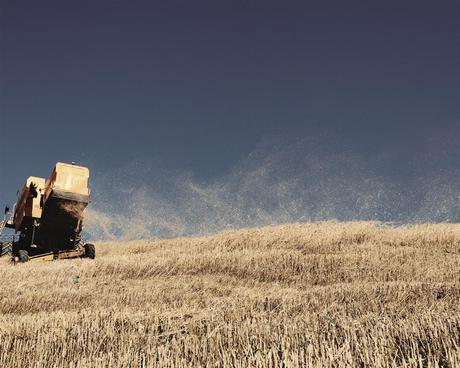
- Do you think there is a "difference" (as most people think) between international organic standards and local organic standards?
European and Chinese standards are basically equivalent, and we shall hope that there will be a mutual recognition one day. They tend to differ on certain points though, for instance on the use of pesticides, for which European standards tend to be more stringent. For instance, when 20 substances from plant and animal origins are allowed under the Chinese regulations, only 9 are listed under European ones. Also, for the use of certain pesticides such as copper salts, Chinese standards only define a general framework (they can be used as a fungicide without upper limit, as long as they do not cause pollution), European standards define a maximum amount to be used.
Another major difference is traceability, as Chinese authorities have developed a unique 17-digit label system that enables to trace the products from the origin to the retail point. This new system, in place since July 2012, aims at promoting confidence in organic products among Chinese people, who often view organic products with great skepticism. There is no similar system in place under European regulations.
Finally, there is a bigger difference in the governance system of organic regulations in general. While European legislations are based on a participative model which puts more emphasis on the responsibility of the operators and the producers themselves, Chinese legislation relies heavily on the responsibility of the government to impose compliance.
- Are organic products more popular among the expat community or local community? Why do you think it's so?
Chinese people are still very brand-conscious. It is still significant to drive the biggest imported German car and to carry the most famous French luxury handbag. But things will change as Chinese will discover more niche products made by smaller producers who offer something different. It applies to food as well, when today our main competitors are well-known pasta producers who source wheat from all over the world and sometimes produce outside of Italy. At Alce Nero™, we believe in local production, in respect of tradition. As such, we do not think in terms of foreign or Chinese community, because we think that everybody understands and feels the need to know where their food come from and that consuming it respects the environment and the interest of the next generations. Therefore, we found that our products are popular among both the expatriate and local communities, which shows that we are on the right track.
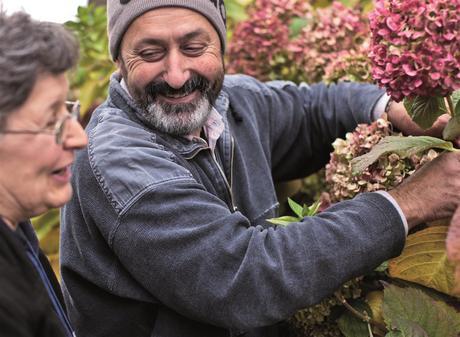
- Where can we found Alce Nero products here in China?
Our products can be found in most international retailers and high-end local retailers in provincial capital cities. However, it is true that it is very difficult to guarantee a uniform and nationwide presence as distribution remains a challenge in China. In that respect, the boom of online retailers is a godsend for us as it allows our products to be available anywhere within a reasonable timeline.
- Any upcoming future projects Alce Nero is working on?
On the marketing side, we are trying to work more and more with cooking schools, because they provide a quality framework to promote our products amongst a receptive audience. For instance, we have been very happy to work with Expat Cucina and Chef Daniela, who, with her background in South Italy and her love for cooking, understands the importance of quality ingredients.
On the commercial side, we would like to extend our online presence to make our products more widely available, in particular through the new system of Cross-Border E-Commerce, which is a growingly popular Business-to-Consumer system which allows to sell foreign products directly to Chinese consumers through duty-free zones.
Generally speaking, I would advise anybody who is lucky enough to go to Italy this summer to visit our booth at Expo Milano 2015 (May 1st - Oct 31st 2015), whose main theme is "Feeding the Planet, Energy for Life". As part of this event, Alce Nero™, together with our partners Berberè™ Light Pizza and Food, is serving delicious menus at the restaurant of the Organic and Natural Products pavilion. Some examples? Naturally-leavened pizzas by Matteo Aloe, and grain, vegetable and legume-based gourmet dishes by Chef Simone Salvini.
